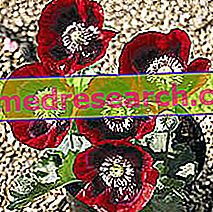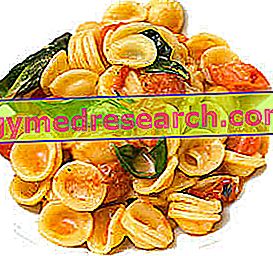
Scientific name
Papaver somniferum
Family
Papaveraceae
Origin
Asia Minor
Used Parts
Drug given by the latex (opium) extracted by incision of the Papaver capsule
Chemical constituents
- Alkaloids: morphine, codeine, papaverine, noscapine, thebaine, narcotine;
- Resins;
- Mucilage.
Poppy in Herbalist: Property of the Poppy
The alkaloids present in the poppy are used in medicine as cough suppressants and for pain relief, because they can act at the level of pain receptors. From the latex the extracted alkaloids, used in medicine, are morphine as a powerful painkiller (used as a drug of choice also in the palliative treatment of terminal diseases) and codeine (present in many pharmaceutical cough formulations).
Biological activity
The poppy did not obtain official approval for any kind of therapeutic indication; however, inside it contains particular alkaloids that are widely used in the medical field.
More in detail, these alkaloids are extracted from the latex obtained by incision of the immature capsules of the plant.
The most alkaloid contained in the poppy is morphine (3-23%), a powerful analgesic that exerts its activity through the stimulation of opioid receptors μ. In truth, morphine can cause a state of euphoria immediately after its intake, but this state is only transitory and depressive symptoms and narcotic effects appear shortly afterwards. Furthermore, morphine is also able to depress the center of the breath, slow down the speed of gastric emptying, cause constipation and urinary retention.
Codeine - in addition to exercising an analgesic action through the same mechanism of action as morphine - is also able to depress the nerve center of the cough and, for this reason, constitutes the active principle of several antitussive drugs.
The alkaloid papaverine, on the other hand, has been shown to possess spasmolytic and vasodilatory activity.
All these active ingredients belong to the so-called family of opioid analgesics and, as such, can only be used under strict medical supervision.
Poppy in folk medicine and homeopathy
In folk medicine, opium obtained from poppy is used as a sedative remedy for intestinal ulcers and intestinal tuberculosis. Furthermore, it is used as an antispasmodic of the urinary tract, bile ducts and smooth muscles in general, but not only. In fact, traditional medicine also uses opium for the treatment of cholelithiasis, kidney stones, colic, peritonitis, cough and even for the treatment of some depressive forms.
In Chinese medicine, however, opium is used to treat disorders such as diarrhea, dysentery and cough.
Even Indian medicine uses opium for the treatment of cough, diarrhea and dysentery, as well as using it in case of proctological disorders, ocular inflammation and ear.
Poppy is also used in homeopathic medicine, where it can easily be found in the form of granules.
In this context, the poppy homeopathic remedy (prepared from the latex extracted from the plant capsules) is used in case of constipation, insomnia, post-operative courses, spasms and chronic alcoholism.
The dose of homeopathic remedy to be taken may vary from individual to individual, also depending on the type of disorder you want to treat and the type of homeopathic dilution you intend to use.
Side effects
Subsequent to the intake of opium can manifest not indifferent side effects, such as: headache, dizziness, spasms, generalized weakness, constipation, itchy skin and rash.
Following overdose, however, euphoria, reduced mental capacity, analgesia, miosis, bradycardia, nausea and vomiting, pulmonary edema, cerebral edema, atony, convulsions, cyanosis and decreased heart rate up to respiratory failure .
Contraindications
Avoid taking poppy in case of proven hypersensitivity to one or more components. Furthermore, the use of alkaloids extracted from opium is contraindicated in pregnancy, during lactation, in patients with respiratory failure and / or high intracranial pressure and in patients suffering from pancreatitis, intestinal ulcers, biliary colic, acute hepatitis and porphyria.
Extreme caution should be used in patients with Addison's disease or hypothyroidism.
Pharmacological Interactions
- sedatives;
- antihistamines.
Note
The popular medicine indicates as light sleeping aid the red poppy or poppy of the fields ( Papaver rhoeas ), also indicated as a mild sedative of the cough, although still containing alkaloid substances, but whose efficacy and safety have never been demonstrated.



